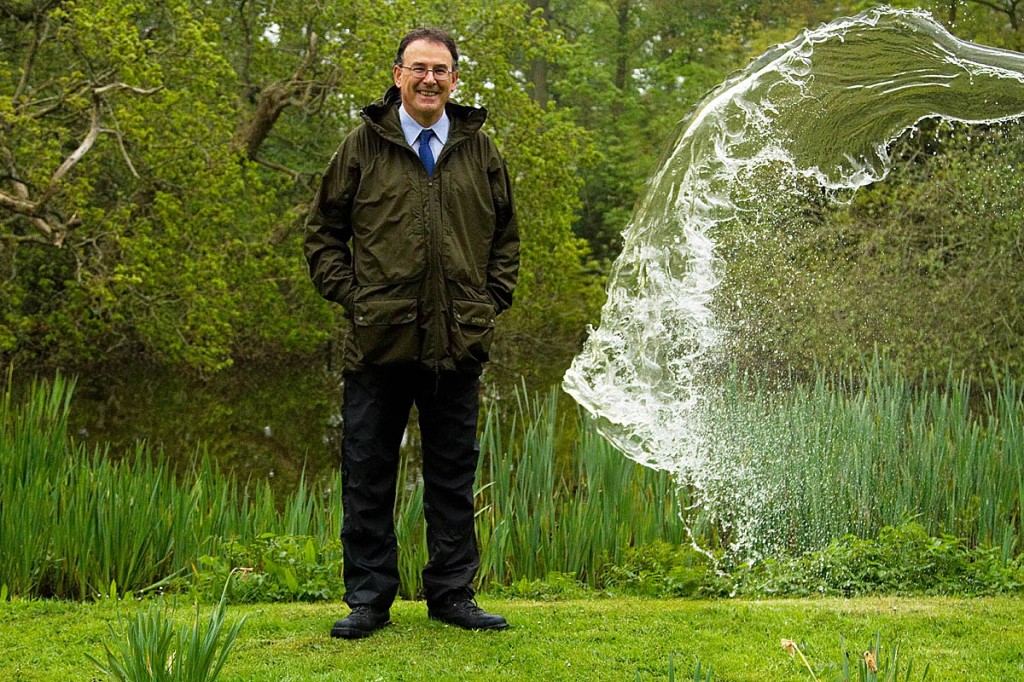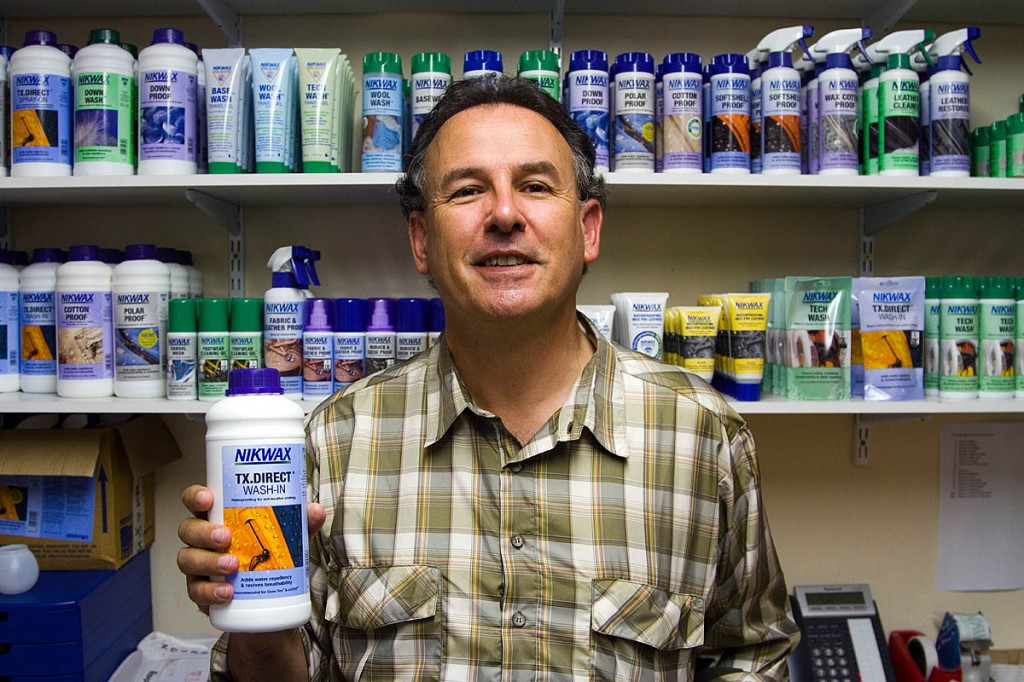Nikwax and Páramo founder and owner Nick Brown has passed his company on to its employees.
He announced on Tuesday he had sold the firm and its brands to a newly formed Employee Ownership Trust.
Mr Brown, 67, took the decision to put control of the company in the hands of its employees, across three continents, to continue its guiding principles.
He said: “By passing on the business to the employees, I feel that I am not only looking after them, but also looking after the interests of our loyal customers.
“Outdoor people have come to have high expectations of Nikwax, at many levels, and I would not want them to be disappointed. So many companies end up being aggressively taken over and broken up, and lose their soul. This is our best shot at avoiding that and continuing the guiding principles.”
The Nikwax brand was formed by Nick Brown in 1977 when he was living in London after finishing university. A company spokesperson said: “He was both unemployed and in love with the outdoors – specifically long-distance walking and backpacking.
“Nick also had a flair for chemistry and he utilised this talent to create his first product, Nikwax Waterproofing Wax for Leather, which he supplied to the 1980 Royal Geographical Society Karakoram expedition, and which went on to sell in more than 50 countries.”
The company expanded, with branches in mainland Europe, and North and South America. Mr Brown went on to develop Nikwax TX.Direct, which outdoor enthusiasts could use to restore the waterproofing and breathability of their garments by adding it to a washing machine.
Nikwax said it is the only established waterproofing aftercare brand never to have used PFCs, which have been linked to cancer and endocrine disruption, in its formulations. It gained the Queen’s Award for Enterprise: Sustainable Development, in 2014, the first outdoor brand to do so.
Fifteen years after establishing Nikwax, Nick Brown, set up Páramo Directional Clothing, to produce outdoor garments that could be reproofed, renewed, repaired and recycled.
Four years ago, the company and its brands embarked upon the process of converting to an Employee Ownership Trust, with the aim of maintaining continuity of values and staff, and future development. The process was completed on Tuesday, with the company being purchased by the workforce, represented by the trust.
Mr Brown said: “Páramo users have huge affection for the brand and for their clothing, and I want this to continue. What we started 30 years ago, and was radical, is now the new goal for manufacturers the world over.”
Although he has not revealed the details of the deal that Mr Brown made with his employees, a spokesperson said part of it is a watertight undertaking that one per cent of turnover will be forevermore dedicated to environmental and social projects.
Maïté Angleys, director of sustainability for Nikwax and Páramo, said: “One per cent for people and planet is about giving back.
“Nikwax has been here for 45 years and it will still be here in another 45 years’ time, which is why we want to do our best to protect the great outdoors for generations to come. To ensure continuity, Nick and his family will be involved in choosing the projects and organisations we support, giving us the chance to preserve our founding values into the future.”
The idea of an Employee Ownership Trust was suggested four years go by Mr Brown’s bank manager, and that started the long and complex project that came to fruition on 1 February, having been delayed by Covid-19.
Special arrangements for Employee Ownership Trusts were introduced by the UK government in 2014, with a view to both protecting and encouraging employment. The founding concept of an EOT is that it exists for the benefit of the employees and all, in effect, are partners whilst employed. Since their introduction, EOTs have become an increasingly popular route for owner and founders to achieve succession, whilst protecting the community of employees they have created.


Brian
01 February 2022Brilliant company with a strong ethical foundation ❤️
summiteer
01 February 2022What a dumb thing to do
Tim Sumner
01 February 2022Love to have a conversation with the Dickhead Summiteer !
Feel he's probably more suited to the bottom rather than the top ?
Dave McIver
01 February 2022Fantastic idea, Nick. I have bought and used your products for decades.
Adam Brook
02 February 2022Really good news. I fully agree with the sentiments expressed in the article.
Yorkshire Dales walker
02 February 2022Paramo - the Velez is the best waterproof jacket I’ve ever owned. It actually works and keeps you dry.
Plus, it’s an ethical company. What’s not to like?
Mike Burrows
02 February 2022Excellent News Nick.
Paramo Clothing Systems are a Top Product with a very good Ethical and Environmental ethos that I have used for more than 20 years.
Rod Hepplewhite
02 February 2022I've a number of Paramo clothes plus a beanie hat and have used the Nikwax cleaning and re-proofing products for a good number of years and have been impressed with them all.
Selling the business to an Employee ownership Trust - capitalism with a heart, what's not to like? We could do with more companies like Nikwax / Paramo. Nick Brown - what a gent.
Wainwrightwalker
02 February 2022Paramo products are fantastic. Own far more than I should, and have replaced items that ended up dying.
Weirdest is the set of Torres sleeves. It's just the sleeves!!
People laugh at you, but you arms are so toastie.
What's your favourite (or weirdest) it of kit?
hughwestacott
02 February 2022I first met Nick at a COLA show many years ago. He couldn’t afford a stand so he had a tray hanging from his neck displaying a few tins of Nikwax I suspect that the organizers were unaware of his presence. I tried Nikwax and gave it a glowing review in, I think, The Great Outdoors. He went from strength to strength and I’ve used many of his products ever since. Today, at the age of 90, I went for a stroll wearing one of the earliest jackets - and it’s still waterproof.
Well done, Nick, and a long, happy, and enjoyable retirement.